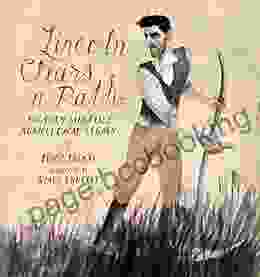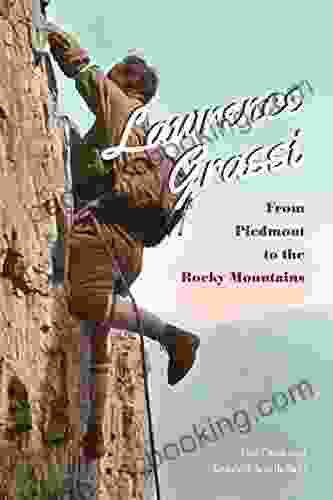Abraham Lincoln's Surprising Agricultural Legacy: Shaping a Nation's Foodways

: Lincoln's Hidden Passion for Agriculture
When we think of Abraham Lincoln, we often picture the towering figure who preserved the Union and emancipated the slaves. However, beyond his political achievements, Lincoln harbored a deep and unwavering passion for agriculture. As the son of a pioneer farmer, Lincoln's formative years in the Kentucky and Indiana frontiers instilled in him a profound understanding and love for the land. This passion would later become an integral part of his presidency, shaping policies that laid the foundation for America's agricultural prowess.
The Farm Boy Roots: Learning from the Land
Born in 1809, Lincoln spent his early life in humble circumstances. His family's remote homestead required arduous labor to sustain itself. Lincoln himself participated in every aspect of farm life, from plowing fields to butchering livestock. These experiences taught him the challenges and rewards of agriculture, fostering in him a lifelong appreciation for the hard work and ingenuity of farmers.
4.7 out of 5
| Language | : | English |
| File size | : | 44605 KB |
As a young man, Lincoln's insatiable curiosity led him to study books on agriculture. He pored over treatises on farming techniques, crop rotation, and animal husbandry, expanding his knowledge and solidifying his commitment to the field.
The Legislator: Shaping Early Agricultural Policies
Lincoln's interest in agriculture extended beyond his personal pursuits. While serving in the Illinois legislature, he championed numerous measures designed to promote agricultural development. He advocated for funds to establish agricultural societies, which would provide farmers with a platform to share knowledge and improve their practices. Lincoln also supported measures to improve transportation infrastructure, recognizing its critical role in connecting farmers to markets.
The President: Cultivating a Nation's Food Security
Lincoln's agricultural legacy reached its zenith during his presidency. Faced with the Civil War's disruption of food supplies, Lincoln took decisive steps to ensure the nation's food security. He established the Department of Agriculture in 1862, a vital agency that would play a pivotal role in disseminating agricultural information and supporting farmers.
Moreover, Lincoln signed the Homestead Act of 1862, offering free land to settlers willing to cultivate it. This landmark legislation encouraged westward expansion and transformed the face of American agriculture. By providing opportunities for landownership, the Homestead Act fostered a generation of farmers who would help feed the growing nation.
The Homestead Act: A Legacy of Land Ownership
The Homestead Act had a profound impact on American history. It enabled millions of families to acquire their own land and build self-sustaining farms. The act played a crucial role in populating the Western territories, expanding the nation's agricultural base, and creating a more equitable distribution of land ownership.
The homesteaders who took advantage of this opportunity faced incredible hardships and challenges. They battled the elements, pests, and isolation to establish their homesteads. Their perseverance and determination paved the way for the agricultural abundance that would become a defining characteristic of the United States.
The Morrill Land-Grant Act: Investing in Agricultural Education
Another of Lincoln's transformative agricultural initiatives was the Morrill Land-Grant Act of 1862. This act granted federal lands to states to establish colleges that would teach agriculture, science, and engineering. These land-grant institutions, known today as land-grant universities, have become cornerstones of American higher education and agricultural research.
The Morrill Act recognized the importance of education in advancing agricultural practices. By providing accessible and affordable means for farmers to gain knowledge and skills, the act laid the foundation for a more scientifically-informed and innovative agricultural sector.
Lincoln's Influence on American Agriculture Today
The agricultural policies implemented during Lincoln's presidency continue to shape American agriculture today. The Department of Agriculture, established by Lincoln, remains a leading force in agricultural research, extension services, and regulatory oversight. The Homestead Act and Morrill Act have left an enduring legacy, fostering generations of farmers and agricultural professionals who have contributed to the nation's food security and economic prosperity.
Lincoln's belief in the potential of agriculture was unwavering. He saw it not only as a means of sustenance but also as a path to progress and prosperity. By laying the foundation for a strong and resilient agricultural sector, Lincoln ensured that generations of Americans would have access to affordable and abundant food.
: Lincoln's Unforgettable Mark on the American Landscape
Abraham Lincoln's legacy as a statesman and visionary is undeniable. However, his profound influence on American agriculture is often overlooked. His passion for the land, coupled with his political acumen, shaped policies that would shape the nation's food system for generations to come.
Lincoln's agricultural legacy is a testament to his forward-thinking vision and his deep understanding of the challenges and opportunities facing the agricultural sector. By promoting landownership, supporting agricultural education, and investing in research, Lincoln laid the groundwork for an agricultural system that would become the envy of the world.
As we reflect on Lincoln's legacy, let us remember his unwavering belief in the potential of agriculture and the enduring impact his policies have had on American society. Abraham Lincoln's agricultural legacy is a lasting tribute to his foresight and his unwavering commitment to ensuring that the nation's food security and economic prosperity would be forever intertwined.
4.7 out of 5
| Language | : | English |
| File size | : | 44605 KB |
Do you want to contribute by writing guest posts on this blog?
Please contact us and send us a resume of previous articles that you have written.
 Book
Book Novel
Novel Page
Page Chapter
Chapter Text
Text Story
Story Genre
Genre Reader
Reader Library
Library Paperback
Paperback E-book
E-book Magazine
Magazine Newspaper
Newspaper Paragraph
Paragraph Sentence
Sentence Bookmark
Bookmark Shelf
Shelf Glossary
Glossary Bibliography
Bibliography Foreword
Foreword Preface
Preface Synopsis
Synopsis Annotation
Annotation Footnote
Footnote Manuscript
Manuscript Scroll
Scroll Codex
Codex Tome
Tome Bestseller
Bestseller Classics
Classics Library card
Library card Narrative
Narrative Biography
Biography Autobiography
Autobiography Memoir
Memoir Reference
Reference Encyclopedia
Encyclopedia Zaina Brown
Zaina Brown Robin Yardi
Robin Yardi Timothy Egan
Timothy Egan Yukio Tsuchiya
Yukio Tsuchiya Paul Schullery
Paul Schullery Peter Graham
Peter Graham Omni Reads
Omni Reads Nojis Books
Nojis Books Paul Clayton
Paul Clayton Patty Jansen
Patty Jansen R Scott Thornton
R Scott Thornton William Evans
William Evans Patrick Ejeke
Patrick Ejeke Philip F Gura
Philip F Gura Peter Farrell
Peter Farrell Prem Carnot
Prem Carnot Paul Knipple
Paul Knipple Peter Darman
Peter Darman Peter Richmond
Peter Richmond Suzanne Barr
Suzanne Barr
Light bulbAdvertise smarter! Our strategic ad space ensures maximum exposure. Reserve your spot today!

 Nathaniel HawthorneFix It And Forget It Diabetic Cookbook Revised And Updated: 550 Slow Cooker...
Nathaniel HawthorneFix It And Forget It Diabetic Cookbook Revised And Updated: 550 Slow Cooker...
 Alexander BlairFrom Flight Attendant to Boarding School Boss: The Inspiring Journey of a...
Alexander BlairFrom Flight Attendant to Boarding School Boss: The Inspiring Journey of a... Emilio CoxFollow ·14.3k
Emilio CoxFollow ·14.3k Thomas PowellFollow ·14.2k
Thomas PowellFollow ·14.2k Heath PowellFollow ·11.1k
Heath PowellFollow ·11.1k Andy ColeFollow ·15.6k
Andy ColeFollow ·15.6k Vladimir NabokovFollow ·13.7k
Vladimir NabokovFollow ·13.7k Jamal BlairFollow ·4.4k
Jamal BlairFollow ·4.4k Victor HugoFollow ·16.7k
Victor HugoFollow ·16.7k Mark MitchellFollow ·2.9k
Mark MitchellFollow ·2.9k

 Marvin Hayes
Marvin HayesGoverning Law for Law School and Bar Exam Prep: Your...
Unlock the Secrets of...

 Sidney Cox
Sidney CoxUnveiling the Epic Tales of Whiskey, War, and Military...
In the tapestry of history,...

 Victor Turner
Victor TurnerGoverning Law for Law School and Bar Exam Prep: The...
What is Governing...

 Robert Browning
Robert BrowningSterling Test Prep MCAT General Chemistry Practice...
: Embark on Your MCAT General Chemistry...
4.7 out of 5
| Language | : | English |
| File size | : | 44605 KB |












